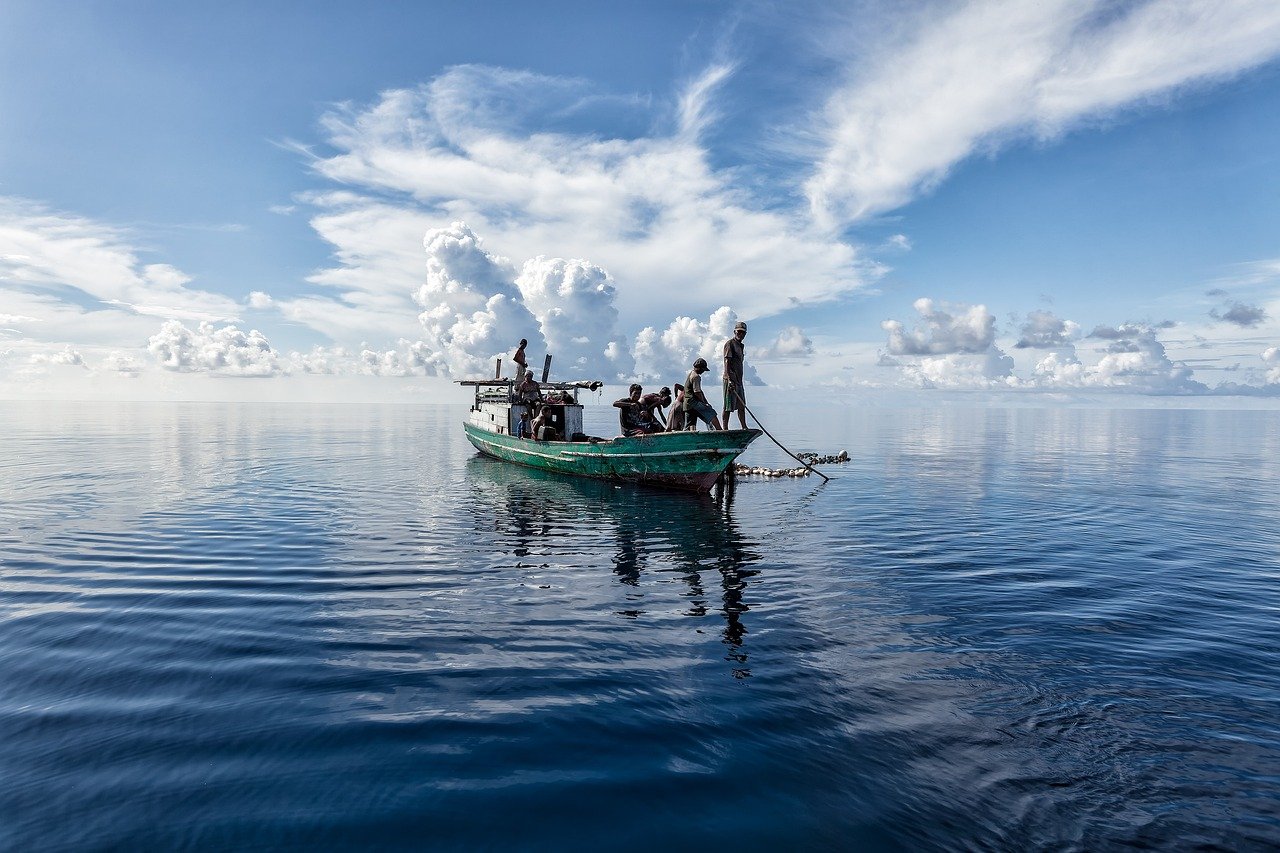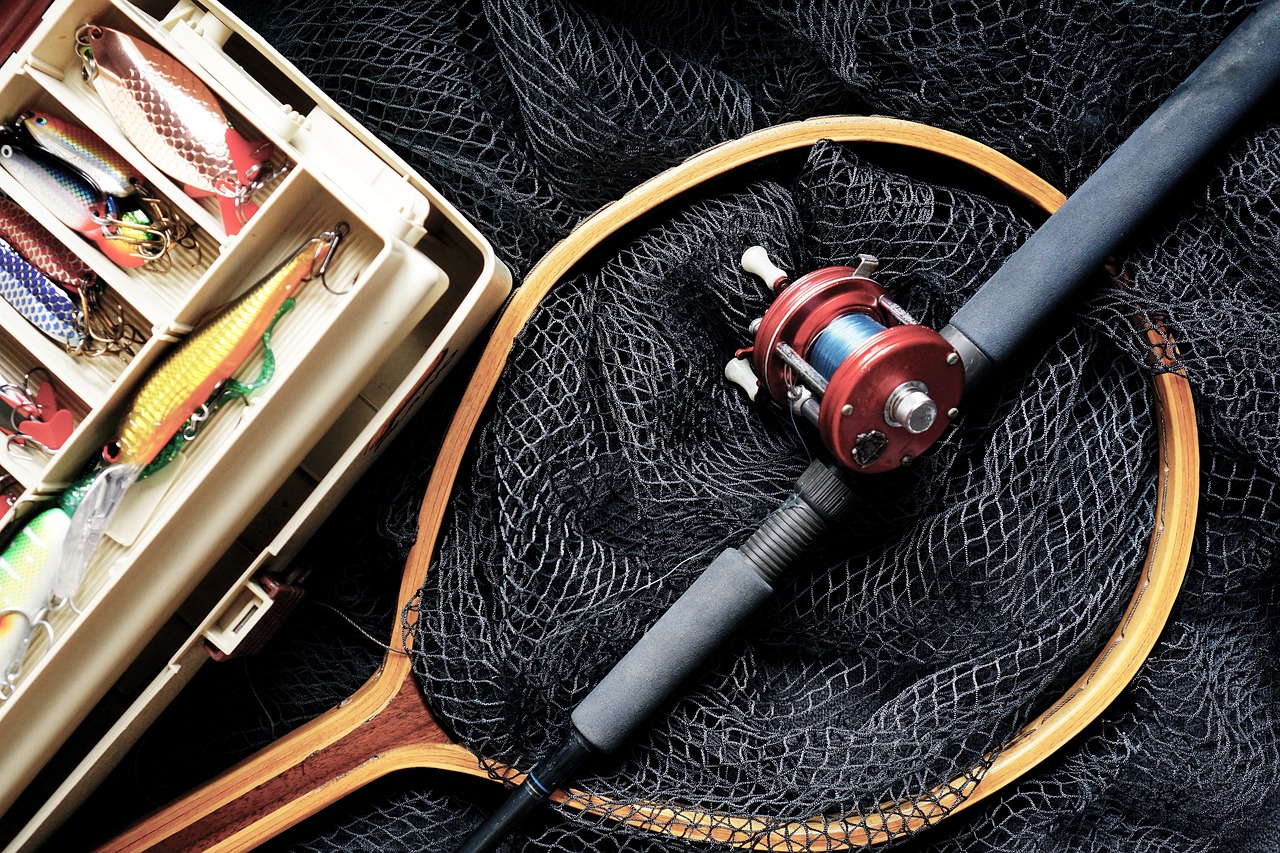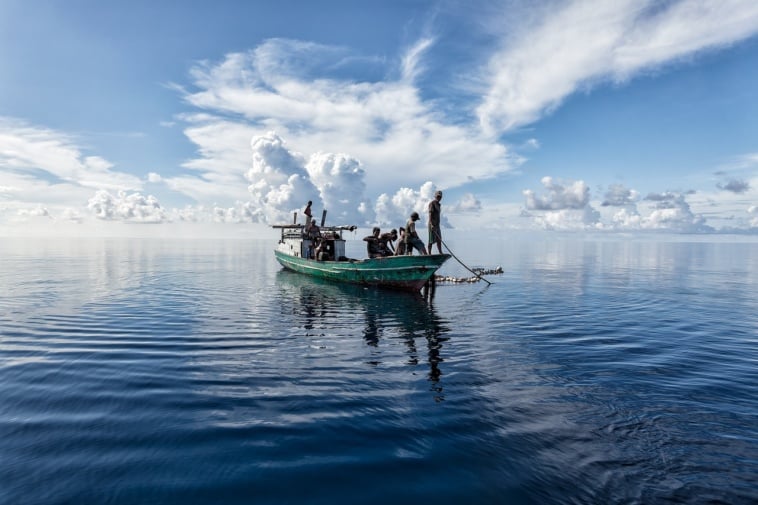Have you ever wondered if you need a fishing license while enjoying a relaxing day on a pontoon boat? Fishing enthusiasts and nature lovers alike often find themselves pondering this question. Whether you’re a seasoned angler or simply enjoy casting a line every now and then, knowing the rules and regulations surrounding fishing licenses can help ensure a hassle-free experience on the water. In this article, we will explore the requirements for fishing licenses when it comes to pontoon boats, providing clarity on this topic that may have left you scratching your head. So, sit back, grab a refreshing beverage, and let’s dive into the world of pontoon fishing and licensing requirements.
What is a pontoon boat?
Definition
A pontoon boat is a type of watercraft that is characterized by its flat deck supported by cylindrical pontoons. These pontoons, which are typically made of aluminum or fiberglass, provide the necessary buoyancy and stability for the boat to float and navigate across bodies of water. Pontoon boats are popular among boating enthusiasts due to their spacious design and versatility, making them suitable for various activities such as fishing, leisure cruising, and water sports.
Features
Pontoon boats have several notable features that set them apart from other types of watercraft. Firstly, their large, flat deck provides plenty of space for passengers and cargo, making them ideal for group outings and recreational activities. Additionally, pontoon boats often come equipped with comfortable seating, tables, and storage compartments to enhance the boating experience. Many pontoon boats also have provisions for shade, such as bimini tops, to protect passengers from the sun’s rays. Finally, most modern pontoon boats are powered by outboard motors, offering reliable propulsion and maneuverability on the water.
Uses
Pontoon boats are exceptionally versatile and can be used for various purposes. One of the most popular uses of a pontoon boat is recreational fishing. Whether you prefer freshwater or saltwater fishing, a pontoon boat provides a stable and comfortable platform for anglers to cast their lines and reel in their catches. Pontoon boats are also commonly used for leisure cruising and social gatherings, as their spacious decks and ample seating can accommodate groups of family and friends. In addition, pontoon boats are well-suited for water sports activities such as tubing, water skiing, and wakeboarding. With their versatility and adaptability, pontoon boats offer endless possibilities for fun and enjoyment on the water.
Understanding fishing licenses
Definition
A fishing license is an official document issued by the relevant government authority that grants an individual legal permission to engage in fishing activities within a specific jurisdiction. This license serves as a means to regulate and manage fishing practices, ensuring the sustainability and conservation of fish populations and their habitats. Fishing licenses are typically required for both recreational and commercial fishing purposes and may vary in terms of their duration, cost, and specific regulations associated with them.
Purpose
The primary purpose of a fishing license is to promote responsible and sustainable fishing practices while conserving fish populations and preserving their natural habitats. By implementing a licensing system, governments can monitor and regulate fishing activities, ensuring that catch limits are adhered to and that vulnerable species are protected. Fishing licenses also generate revenue for government agencies, which can be reinvested into fisheries management and conservation efforts. Ultimately, fishing licenses help maintain the delicate balance between human recreational or commercial fishing interests and the long-term health of aquatic ecosystems.
Types
Fishing licenses can vary depending on the specific regulations and requirements set by the governing authority. Some common types of fishing licenses include:
- General Fishing License: This is the most common type of fishing license that allows individuals to engage in recreational fishing for a wide range of fish species within the designated jurisdiction.
- Species-Specific License: Some jurisdictions may require anglers to obtain a species-specific license, which permits fishing for specific fish species that may have special conservation concerns or management considerations.
- Saltwater Fishing License: In coastal areas or regions with access to saltwater bodies, anglers may be required to obtain a separate saltwater fishing license to engage in fishing activities in these environments.
- Non-Resident Fishing License: Non-residents or visitors to a jurisdiction may be required to obtain a specific fishing license, as regulations and fees may differ for individuals who are not permanent residents.

Fishing regulations
Importance of fishing regulations
Fishing regulations play a crucial role in maintaining sustainable fish populations, protecting vulnerable species, and conserving ecosystems. By implementing and enforcing fishing regulations, governments can prevent overfishing, habitat destruction, and other harmful practices that can lead to the depletion of fish stocks and ecological imbalance. These regulations also help ensure fair access to fishing resources for all anglers and promote ethical fishing practices, such as catch-and-release techniques. By adhering to fishing regulations, anglers can contribute to the long-term health and viability of the ecosystems they enjoy.
Different fishing regulations
Fishing regulations can vary significantly between jurisdictions, as they are tailored to the specific needs and concerns of the local ecosystems and fish populations. Some common fishing regulations include:
- Catch Limits: These regulations define the maximum number or weight of fish that an angler can catch and keep within a specified period. Catch limits help prevent overfishing and promote responsible fishing practices.
- Size Restrictions: Many fishing regulations impose size restrictions on certain fish species, requiring anglers to release fish below a minimum size or to keep only fish that exceed a specific size. This helps protect juvenile fish and allows them to grow and reproduce, ensuring the sustainability of fish populations.
- Protected Areas: Government authorities may designate certain areas as marine protected areas or no-take zones, where fishing activities, particularly commercial fishing, are prohibited or restricted. These protected areas serve as vital sanctuaries for fish populations to thrive and for ecosystems to recover.
- Seasonal Closures: Some fishing regulations impose seasonal closures during specific times of the year to protect spawning grounds or sensitive habitats. This allows fish populations to reproduce and replenish their numbers undisturbed.
- Gear Restrictions: Certain types of fishing gear, such as nets or spearfishing equipment, may be regulated or prohibited to minimize bycatch, prevent habitat damage, or ensure fair access to fishing resources.
Role of licenses
Fishing licenses play a crucial role in ensuring compliance with fishing regulations. By requiring anglers to obtain a license, authorities can more effectively monitor and enforce fishing rules. Fishing licenses provide a means to identify individuals engaged in fishing activities and verify their compliance with catch limits, size restrictions, and other fishing regulations. Failure to possess a valid fishing license while engaging in fishing can result in penalties and fines, as it indicates a disregard for the established regulations. Therefore, obtaining and displaying a fishing license while fishing is not only a legal requirement but also a responsible and ethical practice.
Types of fishing licenses
General fishing license
A general fishing license allows individuals to engage in recreational fishing for a wide range of fish species within the designated jurisdiction. This type of license is typically suitable for those who engage in casual or occasional fishing activities and do not require specific permissions for targeting particular species or fishing in specialized areas. General fishing licenses often have simpler application processes and lower fees compared to more specialized licenses.
Species-specific license
Some jurisdictions may require anglers to obtain a species-specific license when targeting certain fish species. These licenses are designed to manage and protect specific species that may have special conservation concerns or require more stringent management measures. For example, a state might require anglers to obtain a trout stamp in addition to their general fishing license if they wish to fish for trout. Species-specific licenses may have additional requirements, such as educational courses or reporting obligations, to ensure responsible fishing practices.
Saltwater fishing license
In coastal areas or regions with access to saltwater bodies, anglers may be required to obtain a separate saltwater fishing license. Saltwater fishing licenses are specifically tailored to the unique fishing concerns and regulations associated with marine environments. These licenses often address issues such as bag limits, size restrictions, and permits for fishing in protected areas. Anglers interested in both freshwater and saltwater fishing may need to obtain both a general fishing license and a saltwater fishing license, depending on the jurisdiction.
Non-resident fishing license
Non-residents or visitors to a jurisdiction may be required to obtain a specific fishing license. Non-resident fishing licenses typically carry different fees compared to resident licenses, reflecting the fact that non-residents may have limited opportunities to engage in fishing within the jurisdiction. These licenses also help ensure fair access to fishing resources for both residents and non-residents alike, as they contribute to the sustainable management of fish populations and funding for conservation efforts.

Fishing license requirements
Age restrictions
Fishing license requirements often include age restrictions to ensure the responsible participation of anglers. The specific age requirements can vary by jurisdiction, but many regions set a minimum age for individuals to obtain a fishing license. These age restrictions are typically in place to ensure that individuals possess the necessary knowledge and maturity to engage in fishing activities safely and responsibly. Age limits may also relate to specific fishing methods or species that require a higher level of skill or experience. It is important to consult local fishing regulations or the issuing authority to determine the age requirements for obtaining a fishing license in a particular jurisdiction.
Residency requirements
Residency requirements for fishing licenses vary between jurisdictions. Generally, residents of a particular jurisdiction are eligible for resident fishing licenses, while non-residents or visitors may be required to obtain non-resident fishing licenses. Proof of residency, such as a valid driver’s license or utility bill, may be necessary when applying for a fishing license. Residency requirements help ensure that local residents have priority access to fishing resources and that fees collected from licenses benefit the residents and the local environment.
Duration and expiry
Fishing licenses typically have a designated period of validity, which can vary depending on the jurisdiction and the type of license obtained. Some licenses are issued for a specific fishing season, while others may be valid for a full calendar year. It is essential to be aware of the expiration date of a fishing license and to renew it promptly to avoid fishing without a valid license. License renewal processes can vary, with some jurisdictions offering online or automatic renewals, while others require in-person applications or additional documentation.
Benefits of having a fishing license
Supporting conservation efforts
One of the significant benefits of having a fishing license is that it contributes to conservation efforts. The fees collected from fishing licenses are often used to fund fisheries management programs, habitat restoration projects, and scientific research. By purchasing a fishing license, anglers directly contribute to the protection and preservation of fish populations and their habitats. This financial support helps ensure the long-term sustainability of the fisheries, allowing future generations to enjoy fishing opportunities and healthy ecosystems.
Avoiding penalties and fines
Possessing a valid fishing license helps anglers avoid penalties and fines associated with fishing without proper authorization. Fishing without a license is generally considered a violation of fishing regulations and may result in legal consequences, such as fines, confiscation of fishing equipment, or even criminal charges. By obtaining a fishing license and adhering to fishing regulations, anglers demonstrate their commitment to responsible fishing practices and respect for environmental conservation laws.
Access to regulated fishing areas
Many fishing regulations designate specific areas as restricted or regulated fishing zones. These areas may be protected for various reasons, such as spawning grounds, sensitive habitats, or the need for sustainable resource management. Having a fishing license enables anglers to access these regulated fishing areas legally. This not only ensures compliance with fishing regulations but also provides the opportunity to explore diverse fishing environments and potentially discover thriving fish populations in these well-managed areas.

Fishing licenses and watercraft
License requirements for different watercraft
The need for a fishing license extends beyond the type of watercraft used for fishing. Whether you are on a pontoon boat, a kayak, or a motorized vessel, the requirement for a fishing license remains the same, as it is typically tied to the individual angler rather than the specific watercraft. This means that all anglers on board a pontoon boat, including the boat operator, must possess a valid fishing license, regardless of who owns the boat. It is essential to ensure that everyone on a pontoon boat is appropriately licensed to avoid any legal complications or penalties.
Exemptions for certain vessels
While fishing licenses are generally required for most fishing activities, there may be exemptions for certain vessels or specific circumstances. For example, some jurisdictions may exempt anglers fishing from a licensed fishing charter or commercial fishing vessel, as these are already subject to separate licensing and regulations. Additionally, individuals fishing from private ponds or certain private waters may be exempt from obtaining a fishing license, provided they have the necessary permission from the property owner. Nevertheless, it is important to consult local fishing regulations and the issuing authority to determine the specific exemptions and requirements for different types of vessels or fishing situations.
Navigating fishing license regulations on a pontoon boat
Using a pontoon boat for fishing
Pontoon boats are excellent choices for fishing enthusiasts due to their stability, spaciousness, and versatility. Anglers on pontoon boats can enjoy the comfort and convenience of a large deck while having adequate seating for multiple people. The open design of pontoon boats allows for ease of movement and provides ample space to store fishing gear and equipment. With the option to add fishing rod holders, livewells, and other fishing accessories, anglers can transform their pontoon boat into a fully functional fishing platform. Whether you prefer to fish alone or with a group of friends, a pontoon boat offers a comfortable and enjoyable fishing experience.
License requirements for anglers on a pontoon boat
When fishing on a pontoon boat, all anglers onboard, including the boat operator, are required to possess a valid fishing license. This means that each individual planning to engage in fishing activities must obtain and display their fishing license while on the boat. In some cases, certain exemptions or age-related exceptions may apply, particularly for minors fishing under the supervision of a licensed adult. However, it is crucial to familiarize yourself with the specific fishing license requirements of the jurisdiction you are fishing in to ensure compliance and avoid any legal consequences.
Understanding the jurisdiction
State regulations
Fishing license regulations are primarily governed at the state level, with each state having its own set of rules and requirements. It is essential to understand the specific fishing regulations of the state in which you are fishing. State fishing regulations can vary significantly, including differences in catch limits, size restrictions, fishing seasons, and license fees. To ensure compliance with fishing regulations and to avoid any legal complications, consult the official state fishing authority or access the relevant fishing regulations guide or website.
Federal regulations
In addition to state regulations, there may be federal fishing regulations that apply to specific waters or fish species. These regulations are typically enforced by federal agencies such as the National Marine Fisheries Service (NMFS) and the U.S. Fish and Wildlife Service (USFWS). Federal regulations often pertain to important marine resources, migratory fish populations, and offshore fishing activities. It is crucial to familiarize yourself with federal fishing regulations if you plan to fish in federal waters or target species that fall under federal jurisdiction.
International waters
When fishing in international waters, such as those outside the territorial boundaries of any specific country, fishing regulations can be complex and subject to international agreements. International waters are typically governed by regional fisheries management organizations (RFMOs) and international treaties. These organizations set fishing quotas, establish conservation measures, and coordinate efforts to manage fish populations across multiple countries. Anglers interested in fishing in international waters should research and comply with the regulations established by the relevant RFMOs and adhere to sustainable fishing practices to ensure the long-term viability of fish stocks.
Potential consequences of fishing without a license
Legal penalties
Fishing without a valid fishing license is considered a violation of fishing regulations and can result in legal consequences. Depending on the jurisdiction and the severity of the violation, penalties for fishing without a license can range from monetary fines to more severe measures such as the suspension of fishing privileges, confiscation of fishing equipment, or even criminal charges. Additionally, repeated infractions or engaging in illegal fishing practices can have long-term consequences, including the loss of fishing privileges or the inability to obtain future fishing licenses. It is essential to obtain the necessary fishing license and comply with fishing regulations to avoid any legal complications.
Environmental impact
Fishing without a license not only violates legal requirements but also contributes to environmental harm. Fishing regulations are put in place to protect fish populations, preserve habitats, and maintain ecological balance. Engaging in illegal fishing activities can lead to overfishing, the depletion of vulnerable fish stocks, and disturbance of critical habitats. These activities can disrupt the delicate balance of aquatic ecosystems, impacting not only fish populations but also other wildlife that rely on healthy aquatic environments. By obtaining a fishing license and adhering to fishing regulations, anglers play an essential role in conserving and protecting aquatic ecosystems for future generations to enjoy.
In conclusion, fishing licenses are required on pontoon boats, as they are for any other type of watercraft used for fishing. A fishing license is a legal document that grants individuals permission to engage in fishing activities within a specific jurisdiction. Fishing licenses are essential for managing and conserving fish populations, protecting habitats, and ensuring the sustainability of fisheries. There are various types of fishing licenses, including general fishing licenses, species-specific licenses, saltwater fishing licenses, and non-resident fishing licenses. Fishing license requirements may include age restrictions, residency requirements, and specific duration and expiry dates. It is crucial to possess a valid fishing license while on a pontoon boat, as failure to do so can result in legal penalties and fines. By obtaining a fishing license, anglers not only comply with fishing regulations but also actively support conservation efforts, avoid legal consequences, and gain access to regulated fishing areas. Understanding the jurisdiction, including state and federal regulations, is essential when fishing, especially in international waters. Fishing without a license can have severe consequences, both legally and environmentally, leading to fines, loss of fishing privileges, and harm to fish populations and ecosystems. Therefore, it is important to respect and follow fishing license regulations to ensure ethical and sustainable fishing practices.





